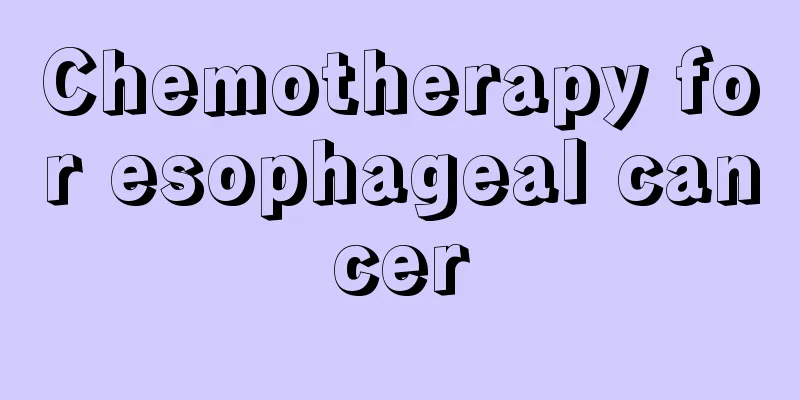Chemotherapy for esophageal cancer

|
Chemotherapy for esophageal cancer has been evolving. Chemotherapy is used in 3 situations: for palliative treatment of advanced esophageal cancer, where its benefit is limited; as preoperative therapy, alone or in combination with radiation therapy, to reduce the size of the primary tumor, improve resection rates, and hopefully remove microscopic metastases; and in combination with radiation therapy as primary therapy for esophageal cancer, either in combination with surgery or nonsurgical treatment. In fact, the role of chemotherapy has been under investigation because it has no significant effect on survival in patients with metastatic disease or in patients with localized disease who have received one or two local therapies. However, data from randomized trials comparing radiotherapy alone with chemotherapy and intracavitary radiotherapy suggest that combination therapy may be beneficial in improving survival in patients with localized esophageal cancer. Many single chemotherapy agents are effective for metastatic esophageal cancer, including bleomycin, cisplatin, 5-fluorouracil, mitomycin, doxorubicin (adriamycin), and methotrexate. In addition, the drugs vinblastine amide and mitoquazone (MGBG) are being investigated for a small effect. Response rates for single agents range from 10% to 40%. Combinations of two or more drugs have also been evaluated for advanced disease, with similar responses ranging from 17% in studies of more than 10 cases, although the survival and symptom palliation effects are modest. Studies of patients with disseminated disease report median survival of 4 to 8 months. Therefore, new agents are greatly needed for patients with metastatic esophageal cancer, which has been treated with standard chemotherapy to date. It should be noted that the vast majority of experience with chemotherapy for esophageal cancer is limited to squamous cell carcinoma. Response rates and drug effects in adenocarcinoma are very similar to those in squamous cell carcinoma. The lack of chemotherapy for localized disease is somewhat similar. The complications of chemotherapy vary depending on the characteristics of the drug or the drug's use (alone or in combination), dosage, and treatment regimen. In the treatment of metastatic disease, combination therapy does not have any advantage over single drug therapy. In addition, phase I and II trials of new drugs are often used for chemotherapy of metastatic disease, so their efficacy is limited. The toxic effects of chemotherapy are generally well known, including nausea, vomiting, alopecia, stomatitis, diarrhea, and bone marrow suppression. Depending on the use of different chemotherapy drugs, there are different organ-specific toxicities, such as renal and cardiac dysfunction. |
<<: Early diagnosis method of esophageal cancer
>>: Treatment of esophageal cancer with TCM differentiation of symptoms
Recommend
Can wet steaming help lose weight
Steaming sauna is something that many people like...
Long-term masturbation causes bloodshot eyes
Masturbation is very harmful to oneself. If you m...
What is the best treatment for bone spurs?
Bone spurs, also known as bone hyperplasia, are p...
Large flakes of dandruff
Many people are actually troubled by dandruff, bu...
What should I do if I am obese due to qi deficiency
In addition to affecting health, qi deficiency ca...
What are the advantages and disadvantages of cycling
With the fast pace of life nowadays, many people ...
What causes black tongue coating
Black tongue coating can be said to be a symptom....
What kind of diet should lung cancer patients pay attention to
Lung cancer is one of the diseases recognized in ...
Most colon cancer patients can find symptoms of abdominal mass
Since the early symptoms of colon cancer are not ...
How to choose a purple clay teapot?
If you have a precious purple clay teapot at home...
The difference between spine and cervical vertebra
Many people think that the spine and cervical ver...
What are the functions of arterial blood gas analysis
Arterial blood gas analysis is a common examinati...
Nursing of laparoscopic radical prostatectomy
Prostate cancer is one of the most common maligna...
Can stomach cancer be transmitted through kissing?
With the continuous development of society, peopl...
Can I take a bath when I have a cold
In the case of a cold, we need to keep warm, but ...









